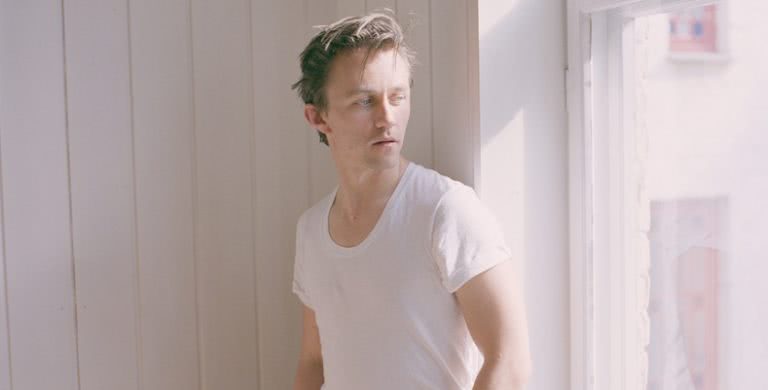Pleaseis the seventh full-length studio release from Norway’s Sondre Lerche, following ten EPs and a much-lauded foray into film scoring. To call his output ‘prodigious’ is selling things a little short – Lerche is clearly from the Frank Zappa school of recording. He has travelled the world extensively, though is yet to perform in Australia (frightened as he is of snakes hiding in our toilets – a completely rational fear, I assure him, though it’s really the pillow scorpions you need to worry about). The prospect of performing for a new audience, though, has him galvanised.
“Performances change when you don’t have a history with the audience,” he says. Lerche is a rapid, pensive talker; looking back over our conversation, the trick is unravelling the many threads of ideas and reflections that tangle his thoughts. “There are people here and there who have been getting hold of the record and have their own stories attached to it, but I have not been there to participate. So it definitely changes, especially that first introduction. I get excited, because you’re starting over. I’ve never been to Australia, so now I get to go and sort of start as a new artist. A debut artist who just happens to have a lot of songs already there,” he laughs.
Now 32, Lerche released his first album, Faces Down, when he was a wizened 19 years old. Since then success has steadily bloomed, though his musical accomplishments have not come without their share of distress. Please emerged in the wake of his divorce from Norwegian director Mona Fastvold, and the bewilderment of a collapsed love is the leitmotif of the record.
“When there’s a turbulent, relatively sudden shift, you’re trying to understand what is going on, why it’s happening, and I certainly have taken advantage of the process behind the record to try to see myself from different angles,” says Lerche. “The truth can be a very flexible thing. Certainly in a dramatic situation like a divorce or break-up, you’re constantly assessing the situation and trying to understand it, though if you look through the lyrics there are certainly no specifics. It gives you the process of understanding, of turning every stone, and also honouring the past and celebrating the future. I think there’s a lot of joy in it. But there are a lot of irrational thoughts as well, trying to create order from chaos. Most of the time that probably fails, but it’s still constructive to at least try. The effort alone is worth the admission.”
Lerche’s recent releases have certainly seen a strong, arguably darker development from his early work. We cannot help but change as we grow – even the word ‘stagnant’ looks somehow blunt and mouldering – though measuring ourselves against our former merits has its own pitfalls.
“The job is to document wherever you are, whatever you’re striving for at the time. This [album] is a document of that, for all its flaws, all its strengths. Hopefully that makes it more compelling. As much as I feel there is good stuff in a record like Faces Down, you can never achieve it again. There were certainly qualities that I had back then that I will never have again, and there are certain flaws or indulgences that I cringe over now that also thankfully I don’t have now. But that’s the name of the game, that’s any record. I’m sure when looking at Please through the rear-view mirror I’ll start seeing that from a different regard, but for now, you know, it feels like a pretty strong album. I’m happy.”
Please out now through Kobalt. Catch him atNewtown Social Club onTuesday November 25, tickets online.


































